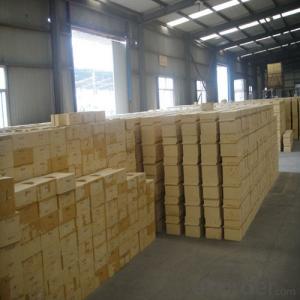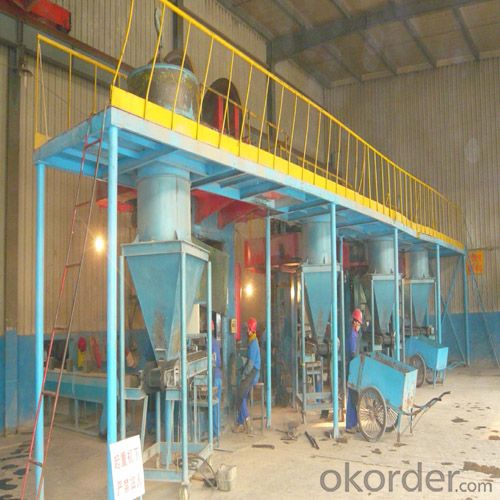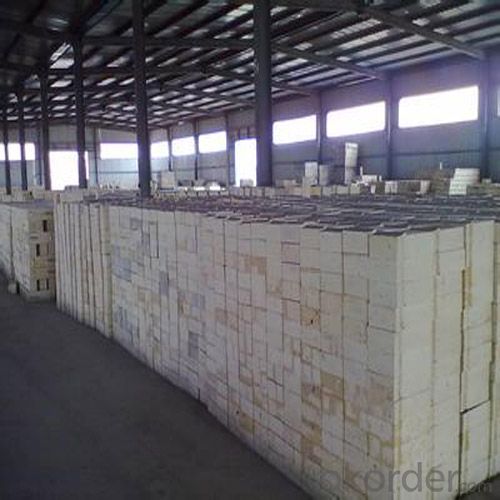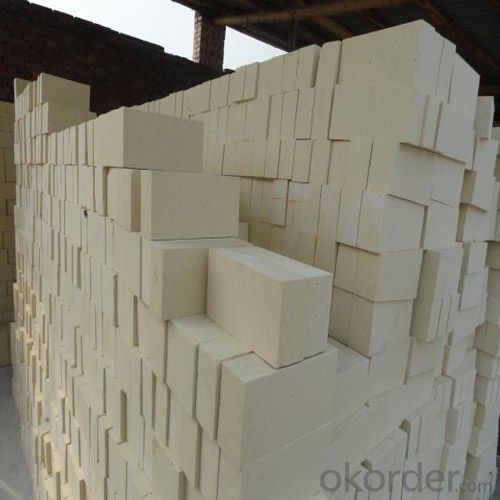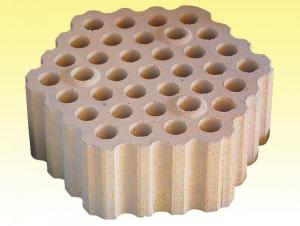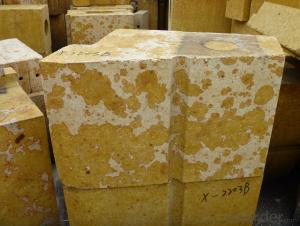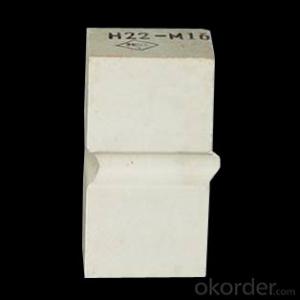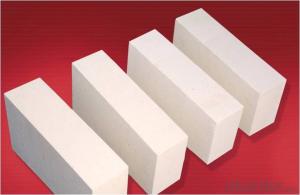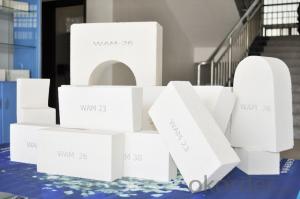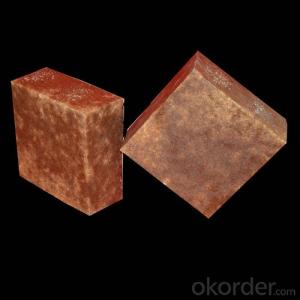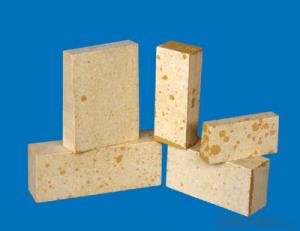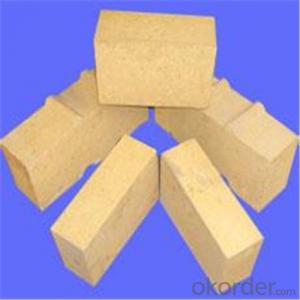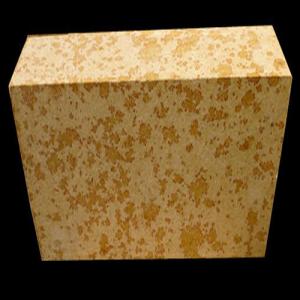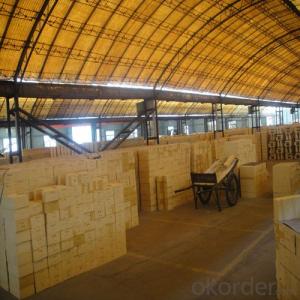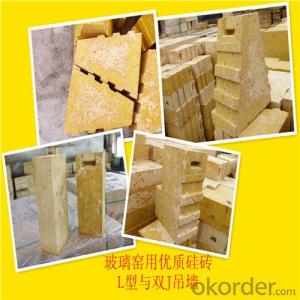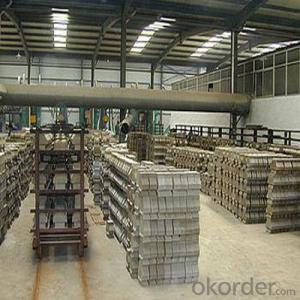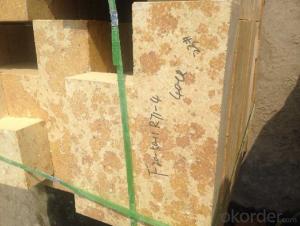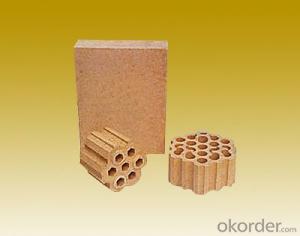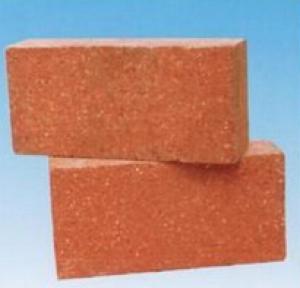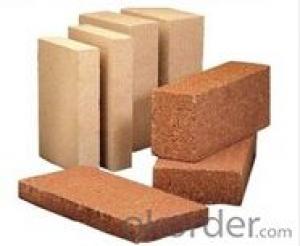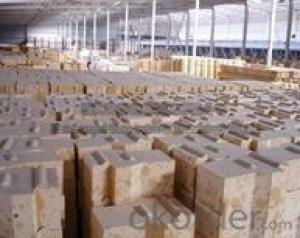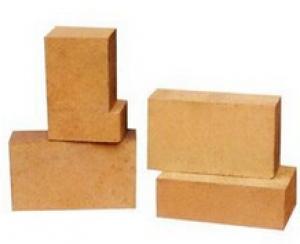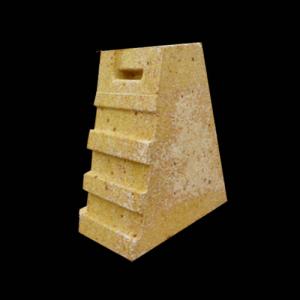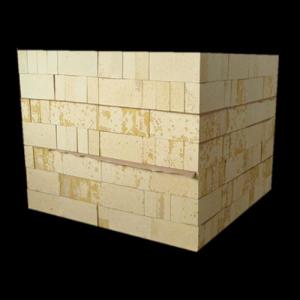Silica Refractory Bricks for Hot Blast Stove - G95A
- Loading Port:
- China Main Port
- Payment Terms:
- TT OR LC
- Min Order Qty:
- -
- Supply Capability:
- 30000 pc/month
OKorder Service Pledge
OKorder Financial Service
You Might Also Like
General Information of SilicaBrick For Coke Oven
Our corporation produces a comprehensive range of silicabricks, with high silica content, all of these bricks exhibit excellentperformance.
Our Silica bricks are the final result of blendingexcellent tridymite and cristobalite, as the main raw materials withcutting-edge technology, after mixing, drying, forming, in the high temperatureshuttle kiln. There are also little quartz and vitreous within. We ensure youthat the silica bricks made by us possess high quality standard and have gonethrough all the complicated quality control parameters. Their durability andstrength adds life to the structure and they have the capacity of bearing hightemperature.
Feature of Silica Brick For Coke Oven
Resistant to thermal shock, abrasion, chemical attack
High ability for anti-abrasion during work
Superior resistance to acids (including oxidizing)
Resistance to chlorine
Resistance to thermal shock and pressure changes
Low thermal and chemical expansion
Applications of Silica Brick Coke Oven
Silica brick for Coke Oven ismainly used in Coke Oven.
Silica Brick For Hot Blast Stove---G95A | ||
Physical Properties: |
|
|
Permanent Linear Change(1500℃×4h)% | % | 0.2 |
Apparent Porosity, % | % | |
Cold Crushing Strength | Mpa | 27 |
Refractoriness Under Load (T0.6) | ℃ | ≥1600 |
Thermal Expansion | % | ≤1.3 |
Density | g/cm3 | ≥2.35 |
Chemical Analysis: |
|
|
SiO2 | % | ≥95 |
Fe2O3 | % | ≤1.5 |
Al2O3 | % | ≤1 |
Residual Quartz | % | ≤1 |
Note: | ||
- Q: Because of the recent relates to this industry, by way of learning to name for all raw materials, I hope knowledgeable friends exhibitions, thank you.
- The main raw material is the main body of refractory. Auxiliary raw materials can be divided into binders and additives. The role of bonding agent is to make the refractory body in the production and use process has enough strength. There are commonly used lignin, phenolic resin, asphalt, cement, water glass, phosphoric acid and phosphate, sulfate, some main raw material itself has the effect of binder, such as clay; additive is to improve the production of refractory materials and construction technology, or strengthen the refractory material of some properties, such as stabilizer, water reducing agent, inhibitor, plasticizer, foaming agent, dispersing agent, bulking agent, antioxidant.
- Q: The specific content is what gb/t2608-2012 brick
- The provisions of the brick classification, technical requirements, test methods,
- Q: The difference between clay refractory bricks and refractory brick in the application.
- Clay brick features good thermal shock resistance and low price, but high temperature performance is not well integrated, and the long-term use temperature is not higher than 1300 degrees. It is widely used in low temperature parts of various kilns.
- Q: Semisilica brick interpretation
- High temperature volume stability. Volume change is small.
- Q: How much is the highest melting point of silicon?
- Acidic silica brick refractories, softening temperature is as high as 1640 to 1670 DEG C, in the long-term use volume is relatively stable under high temperature. More than 94% silica content.
- Q: Which material is good for furnace refractory?
- Kiln types of refractories is very extensive, selection of refractory materials according to the type of furnace furnace temperature and use of selected refractory material, refractory material is divided into custom products of refractory bricks and unshaped refractory castable series products. According to chemistry, it is divided into acidic, neutral and alkaline materials.
- Q: Why is the three oxidation of two silicon is very harmful impurities in silica brick
- Heating calcination is the best way to extend this sort of impurity removal. Remove impurities
- Q: Can not use it two brick
- Acidic silica brick refractory material, has good ability in acid slag erosion
- Q: The chemical composition of silica brick and its physicochemical index?
- Brick refers to the refractory products in more than 93% of the content of SiO2
- Q: The difference between clay refractory bricks and refractory brick in the application.
- Brick bearing soft temperature and close to the melting point, high temperature strength, can be in high temperature (above 1400 degrees) under the condition of long-term use, but the anti alkali erosion ability, thermal shock stability is the worst, a scrap. The brick is generally used in the coke oven, glass kiln. Other industries basically do not use.
Send your message to us
Silica Refractory Bricks for Hot Blast Stove - G95A
- Loading Port:
- China Main Port
- Payment Terms:
- TT OR LC
- Min Order Qty:
- -
- Supply Capability:
- 30000 pc/month
OKorder Service Pledge
OKorder Financial Service
Similar products
Hot products
Hot Searches
Related keywords
